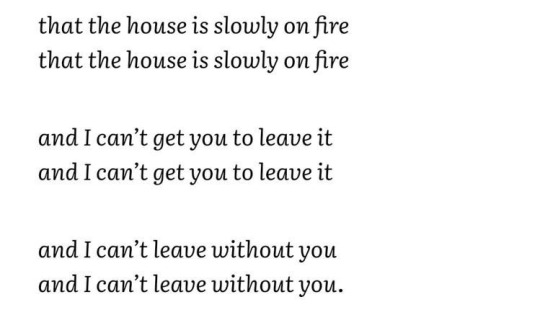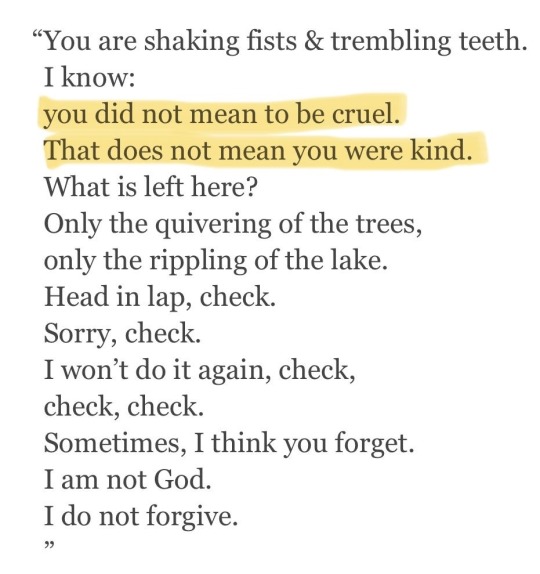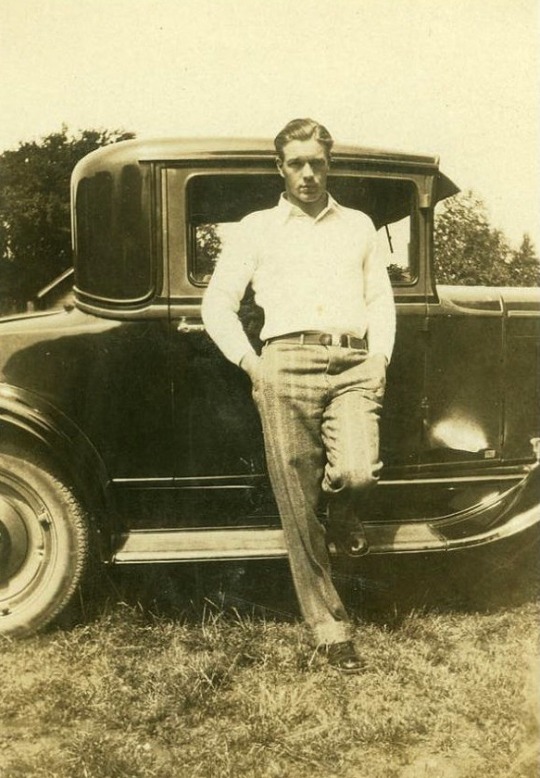#cole harris
Explore tagged Tumblr posts
Text
"In these circumstances, the commercial economy of the fur trade soon yielded to industrial economies focused on mining, forestry, and fishing. The first industrial mining (for coal) began on Vancouver Island in the early 1850s, the first sizeable industrial sawmill opened a few years later, and fish canning began on the Fraser River in 1870. From these beginnings, industrial economies reached into the interstices of British Columbia, establishing work camps close to the resource, and processing centers (canneries, sawmills, concentrating mills) at points of intersection of external and local transportation systems. As the years went by, these transportation systems expanded, bringing ever more land (resources) within reach of industrial capital. Each of these developments was a local instance of David Harvey's general point that the pace of time-space compressions after 1850 accelerated capital's "massive, long-term investment in the conquest of space" (Harvey 1989, 264) and its commodifications of nature. The very soil, Marx said in another context, was becoming "part and parcel of capital" (1967, pt. 8, ch. 27).
As Marx and, subsequently, others have noted, the spatial energy of capitalism works to deterritorialize people (that is, to detach them from prior bonds between people and place) and to reterritorialize them in relation to the requirements of capital (that is, to land conceived as resources and freed from the constraints of custom and to labor detached from land). For Marx the
wholesale expropriation of the agricultural population from the soil... created for the town industries the necessary supply of a 'free' and outlawed proletariat (1967, pt. 8, ch. 27).
For Gilles Deleuze and Felix Guattari (1977) - drawing on insights from psychoanalysis - capitalism may be thought of as a desiring machine, as a sort of territorial writing machine that functions to inscribe "the flows of desire upon the surface or body of the earth" (Thomas 1994, 171-72). In Henri Lefebvre's terms, it produces space in the image of its own relations of production (1991; Smith 1990, 90). For David Harvey it entails the "restless formation and reformation of geographical landscapes," and postpones the effects of its inherent contradictions by the conquest of space-capitalism's "spatial fix" (1982, ch. 13; 1985, 150, 156). In detail, positions differ; in general, it can hardly be doubted that in British Columbia industrial capitalism introduced new relationships between people and with land and that at the interface of the native and the nonnative, these relationships created total misunderstandings and powerful new axes of power that quickly detached native people from former lands. When a Tlingit chief was asked by a reserve commissioner about the work he did, he replied
I don't know how to work at anything. My father, grandfather, and uncle just taught me how to live, and I have always done what they told me-we learned this from our fathers and grandfathers and our uncles how to do the things among ourselves and we teach our children in the same way.
Two different worlds were facing each other, and one of them was fashioning very deliberate plans for the reallocation of land and the reordering of social relations. In 1875 the premier of British Columbia argued that the way to civilize native people was to bring them into the industrial workplace, there to learn the habits of thrift, time discipline, and materialism. Schools were secondary. The workplace was held to be the crucible of cultural change and, as such, the locus of what the premier depicted as a politics of altruism intended to bring native people up to the point where they could enter society as full, participating citizens. To draw them into the workplace, they had to be separated from land. Hence, in the premier's scheme of things, the small reserve, a space that could not yield a livelihood and would eject native labor toward the industrial workplace and, hence, toward civilization. Marx would have had no illusions about what was going on: native lives, he would have said, were being detached from their own means of production (from the land and the use value of their own labor on it) and were being transformed into free (unencumbered) wage laborers dependent on the social relations of capital. The social means of production and of subsistence were being converted into capital. Capital was benefiting doubly, acquiring access to land freed by small reserves and to cheap labor detached from land.
The reorientation of land and labor away from older customary uses had happened many times before, not only in earlier settler societies, but also in the British Isles and, somewhat later, in continental Europe. There, the centuries-long struggles over enclosure had been waged between many ordinary folk who sought to protect customary use rights to land and landlords who wanted to replace custom with private property rights and market economies. In the western highlands, tenants without formal contracts (the great majority) could be evicted "at will." Their former lands came to be managed by a few sheep farmers; their intricate local land uses were replaced by sheep pasture (Hunter 1976; Hornsby 1992, ch. 2). In Windsor Forest, a practical vernacular economy that had used the forest in innumerable local ways was slowly eaten away as the law increasingly favored notions of absolute property ownership, backed them up with hangings, and left less and less space for what E.P. Thompson calls "the messy complexities of coincident use-right" (1975, 241). Such developments were approximately reproduced in British Columbia, as a regime of exclusive property rights overrode a fisher-hunter-gatherer version of, in historian Jeanette Neeson's phrase, an "economy of multiple occupations" (1984, 138; Huitema, Osborne, and Ripmeester 2002). Even the rhetoric of dispossession - about lazy, filthy, improvident people who did not know how to use land properly - often sounded remarkably similar in locations thousands of miles apart (Pratt 1992, ch. 7). There was this difference: The argument against custom, multiple occupations, and the constraints of life worlds on the rights of property and the free play of the market became, in British Columbia, not an argument between different economies and classes (as it had been in Britain) but the more polarized, and characteristically racialized juxtaposition of civilization and savagery...
Moreover, in British Columbia, capital was far more attracted to the opportunities of native land than to the surplus value of native labor. In the early years, when labor was scarce, it sought native workers, but in the longer run, with its labor needs supplied otherwise (by Chinese workers contracted through labor brokers, by itinerant white loggers or miners), it was far more interested in unfettered access to resources. A bonanza of new resources awaited capital, and if native people who had always lived amid these resources could not be shipped away, they could be-indeed, had to be-detached from them. Their labor was useful for a time, but land in the form of fish, forests, and minerals was the prize, one not to be cluttered with native-use rights. From the perspective of capital, therefore, native people had to be dispossessed of their land. Otherwise, nature could hardly be developed. An industrial primary resource economy could hardly function.
In settler colonies, as Marx knew, the availability of agricultural land could turn wage laborers back into independent producers who worked for themselves instead of for capital (they vanished, Marx said, "from the labor market, but not into the workhouse") (1967, pt. 8, ch. 33). As such, they were unavailable to capital, and resisted its incursions, the source, Marx thought, of the prosperity and vitality of colonial societies. In British Columbia, where agricultural land was severely limited, many settlers were closely implicated with capital, although the objectives of the two were different and frequently antagonistic. Without the ready alternative of pioneer farming, many of them were wage laborers dependent on employment in the industrial labor market, yet often contending with capital in bitter strikes. Some of them sought to become capitalists. In M. A. Grainger's Woodsmen of the West, a short, vivid novel set in early modern British Columbia, the central character, Carter, wrestles with this opportunity. Carter had grown up on a rock farm in Nova Scotia, worked at various jobs across the continent, and fetched up in British Columbia at a time when, for a nominal fee, the government leased standing timber to small operators. He acquired a lease in a remote fjord and there, with a few men under towering glaciers at the edge of the world economy, attacked the forest. His chances were slight, but the land was his opportunity, his labor his means, and he threw himself at the forest with the intensity of Captain Ahab in pursuit of the white whale. There were many Carters.
But other immigrants did become something like Marx's independent producers. They had found a little land on the basis of which they hoped to get by, avoid the work relations of industrial capitalism, and leave their progeny more than they had known themselves. Their stories are poignant. A Czech peasant family, forced from home for want of land, finding its way to one of the coaltowns of southeastern British Columbia, and then, having accumulated a little cash from mining, homesteading in the province's arid interior. The homestead would consume a family's work while yielding a living of sorts from intermittent sales from a dry wheat farm and a large measure of domestic self-sufficiency-a farm just sustaining a family, providing a toe-hold in a new society, and a site of adaptation to it. Or, a young woman from a brick, working-class street in Derby, England, coming to British Columbia during the depression years before World War I, finding work up the coast in a railway hotel in Prince Rupert, quitting with five dollars to her name after a manager's amorous advances, traveling east as far as five dollars would take her on the second train out of Prince Rupert, working in a small frontier hotel, and eventually marrying a French Canadian farmer. There, in a northern British Columbian valley, in a context unlike any she could have imagined as a girl, she would raise a family and become a stalwart of a diverse local society in which no one was particularly well off. Such stories are at the heart of settler colonialism (Harris 1997, ch. 8).
The lives reflected in these stories, like the productions of capital, were sustained by land. Older regimes of custom had been broken, in most cases by enclosures or other displacements in the homeland several generations before emigration. Many settlers became property owners, holders of land in fee simple, beneficiaries of a landed opportunity that, previously, had been unobtainable. But use values had not given way entirely to exchange values, nor was labor entirely detached from land. Indeed, for all the work associated with it, the pioneer farm offered a temporary haven from capital. The family would be relatively autonomous (it would exploit itself). There would be no outside boss. Cultural assumptions about land as a source of security and family-centered independence; assumptions rooted in centuries of lives lived elsewhere seemed to have found a place of fulfillment. Often this was an illusion - the valleys of British Columbia are strewn with failed pioneer farms - but even illusions drew immigrants and occupied them with the land.
In short, and in a great variety of ways, British Columbia offered modest opportunities to ordinary people of limited means, opportunities that depended, directly or indirectly, on access to land. The wage laborer in the resource camp, as much as the pioneer farmer, depended on such access, as, indirectly, did the shopkeeper who relied on their custom.
In this respect, the interests of capital and settlers converged. For both, land was the opportunity at hand, an opportunity that gave settler colonialism its energy. Measured in relation to this opportunity, native people were superfluous. Worse, they were in the way, and, by one means or another, had to be removed. Patrick Wolfe is entirely correct in saying that "settler societies were (are) premised on the elimination of native societies," which, by occupying land of their ancestors, had got in the way (1999, 2). If, here and there, their labor was useful for a time, capital and settlers usually acquired labor by other means, and in so doing, facilitated the uninhibited construction of native people as redundant and expendable. In 1840 in Oxford, Herman Merivale, then a professor of political economy and later a permanent undersecretary at the Colonial Office, had concluded as much. He thought that the interests of settlers and native people were fundamentally opposed, and that if left to their own devices, settlers would launch wars of extermination. He knew what had been going on in some colonies - "wretched details of ferocity and treachery" - and considered that what he called the amalgamation (essentially, assimilation through acculturation and miscegenation) of native people into settler society to be the only possible solution (1928, lecture xviii). Merivale's motives were partly altruistic, yet assimilation as colonial practice was another means of eliminating "native" as a social category, as well as any land rights attached to it as, everywhere, settler colonialism would tend to do.
These different elements of what might be termed the foundational complex of settler colonial power were mutually reinforcing. When, in 1859, a first large sawmill was contemplated on the west coast of Vancouver Island, its manager purchased the land from the Crown and then, arriving at the intended mill site, dispersed its native inhabitants at the point of a cannon (Sproat 1868). He then worried somewhat about the proprieties of his actions, and talked with the chief, trying to convince him that, through contact with whites, his people would be civilized and improved. The chief would have none of it, but could stop neither the loggers nor the mill. The manager and his men had debated the issue of rights, concluding (in an approximation of Locke) that the chief and his people did not occupy the land in any civilized sense, that it lay in waste for want of labor, and that if labor were not brought to such land, then the worldwide progress of colonialism, which was "changing the whole surface of the earth," would come to a halt. Moreover, and whatever the rights or wrongs, they assumed, with unabashed self-interest, that colonists would keep what they had got: "this, without discussion, we on the west coast of Vancouver Island were all prepared to do." Capital was establishing itself at the edge of a forest within reach of the world economy, and, in so doing, was employing state sanctioned property rights, physical power, and cultural discourse in the service of interest."
- Cole Harris, “How Did Colonialism Dispossess? Comments from an Edge of Empire,” Annals of the Association of American Geographers, Vol. 94, No. 1 (Mar., 2004), p. 172-174.
#settler colonialism#settler colonialism in canada#dispossession#violence of settler colonialism#land theft#canadian history#indigenous people#first nations#reading 2024#cole harris#history of british columbia#reservation system#resource extraction#british empire#canada in the british empire#homesteading#marxist theory#capitalism#capitalism in canada#immigration to canada
24 notes
·
View notes
Text






















and bless the daughter but fuck the family
it lingers for your whole life - katie maria/the sun is also a star - nicola yoon/the lost girls: a poetry collection on girlhood, grief, and growing up - lyra wren/crush - richard siken/unknown/on earth we're briefly gorgeous - ocean vuong/ @emmajadepaige/stick season - noah kahan/promises of gold - josé olivarez/matilda - harry styles/susan smith - wych elm/tangerine - nolune/#6 - aroara/right now - gracie abrams/love & a loaded gun - emily rose cole/someday I'll love - ocean vuong/ @parentless-suggestions/unknown/the burning - venetta octavia/you can love him but you can't keep him - @pencap/a poem from the adult daughter to the narcissistic mother: not your fault, not mine, just is - katherine fabrizio/courtney love prays to oregon - clementine von radics
#thoughts this would be a good one for the holidays lol#lilly’s weaves#web weaving#poetry parallels#quotes#web weave#poetry#katie maria#nicola yoon#lyra wren#richard siken#ocean vuong#noah kahan#jose olivarez#harry styles#wych elm#nolune#aroara#gracie abrams#emily rose cole#venetta octavia#katherine fabrizio#clementine von radics#on family#on childhood#on trauma#on fathers#on mothers#on siblings
3K notes
·
View notes
Text
THE CAST OF ‘HOUSE OF THE DRAGON’ REACTING TO HELAEMOND'S THEORIES
AEMOND is the father of helaena's kids.
PHIA: ‘how do you feel about that?’
TOM: ‘it pisses me off, actually. i'm so protective over my children. that would be so sad for aegon. he loves them so much.’
#house of the dragon#hotd#hotd s2#tv shows#team green#team black#hotd theories#video#hotd cast#aemond targaryen#ewan mitchell#steve toussaint#eve best#rhaenys targaryen#corlys velaryon#harry collett#jace velaryon#king aegon ii targaryen#tom glynn carney#helaena targaryen#phia saban#ser criston cole#fabien frankel#olivia cooke#alicent hightower#matthew needham#larys strong#helaemond#helaegon#aegond
2K notes
·
View notes
Text




More stupid Twin Peaks things I made
#third post was by wizardjpeg idk why I removed the usertag lol#twin peaks#dale cooper#harry truman#trucoop#gordon cole#albert rosenfield
1K notes
·
View notes
Text
on this episode of keeping up with the Targaryens..
team green





team Black


#the chaos that is team green family#and uncle fuckers that are called “team black”#I thought we deserved to know what happened after last episode of keeping up with tge targaryens#thankfully everyone's still alive#keeping up with the targaryens#hotd tweets#lucemond#daemond#jacegon#anti criston cole#team green#team black#aemond targaryen#daemon targaryen#lucerys targaryen#lucerys velaryon#jacaerys velaryon#jacaerys targaryen#rhaenyra targaryen#otto hightower#alicent hightower#aegon ii targaryen#helaena targaryen#daeron targaryen#tom glynn carney#matt smith#ewan mitchell#house of the dragon#harry collett#olivia cooke
522 notes
·
View notes
Text



Aemond Targaryen when I catch you.. my poor babies Rhaenyra and Jace being devastated 💔 what’d y’all think of episode 1?
HOUSE OF THE DRAGON 2 - Episode 1 A SON FOR A SON
#house of the dragon#rhaenyra targaryen#jacaerys velaryon#daemon targaryen#game of thrones#daemyra#emma d’arcy#matt smith#harry collett#love#hotd#targaryen#milly alcock#alicent hightower#aemond targaryen#aegon targaryen#helaena targaryen#lucerys velaryon#rhaenys velaryon#criston cole#rhaenyra x daemon#arrax#syrax#caraxes#hotdedit#houseofthedragonedit#olivia cooke
824 notes
·
View notes
Text

albert's whatsapp done by yours truly to celebrate 34 years of twin peaks
#i used a picture of lula from wild at heart for young diane btw#twin peaks#dale cooper#kyle maclachlan#albert rosenfield#miguel ferrer#harry truman#michael ontkean#gordon cole#david lynch#ben horne#richard beymer#diane evans#laura dern#twin peaks memes#my memes
593 notes
·
View notes
Text






Peaky blinders men in comparison with real 20s/30s/40s men.
#bro has been in my drafts since 2022!!!#I can’t remember any details of the vintage real pics but it felt right to post anyways#trip down memory lane🕺🏻#peaky blinders#finn shelby#john shelby#michael gray#harry kirton#joe cole#finn cole#comparisons
192 notes
·
View notes
Text
"In the hands of some of its most able practitioners, postcolonial scholarship is a potent means of exploring the reworking ("provincializing") of European thought at and for the margins of empire (Chakrabarty 2000, 16). However, most postcolonial scholarship is written out of British or American universities and emanates from the heart of a recently superceded empire or of a recently ascendant one that hesitates to acknowledge its own imperial background. American postcolonial scholarship is not preoccupied with America (Hulme 1995; Thomas 1994172-73). In the background of such scholarship are European theorists, particularly Foucault, Derrida, and Gramsci; in the foreground, European colonial thought and culture. In these circumstances, as many have pointed out, it tends to be Eurocentric - or as the Australian anthropologist Patrick Wolfe puts it, occidocentric (1999,1). So positioned, it is well placed to comment on the imperial mind in its large diversity, and even - especially in the hands of scholars like Homi Bhabha and Dipesh Chakrabarty who grew up in former colonies - on the ways in which European thought has been inflected and hybridized by its colonial encounters, but not on the diverse, on-the-ground workings of colonialism in colonized spaces around the world. A central claim of the distinguished Indian subaltern historian, Ranajit Guha, is that if British historical writing on the subcontinent reveals something of Britain and the Raj, it reveals nothing of India (1997). Somewhat similar criticisms have been made of much of the postcolonial literature: that it (or parts of it) anticipates a radically restructured European historiography, that it allows for nothing outside the (European) discourse of colonialism, that it is yet another exercise in metatheory and in European universalism (e.g., Slemon 1994; McClintock 1994). As the literary theorist Benita Parry puts it, the postcolonial emphasis on language and texts tends to offer "the World according to the Word" (1997, 12)-and the word tends to be European. But unless it can be shown that colonialism is entirely constituted by European colonial culture (a proposition for which it is hard to imagine any convincing evidence unless the concept of culture is understood so broadly that it loses any analytical value), then studies of colonial discourse, written from the center, must be a very partial window on the workings of colonialism.
...
But if the aim is to understand colonialism rather than the workings of the imperial mind, then it would seem essential to investigate the sites where colonialism was actually practiced. Its effects were displayed there. The strategies and tactics on which it relied were actualized there. There, in the detail of colonial dispossessions and repossessions, the relative weight of different agents of colonial power may begin to be assessed. If colonialism is the object of investigation, then the sparse Canadian Shield is promising terrain. It was not detached from London, of course, and may have been profoundly influenced by elements of imperial thought and culture, but the extent of this influence cannot be ascertained in London. Rather, I think, one needs to study the colonial site itself, assess the displacements that took place there, and seek to account for them. To do so is to position studies of colonialism in the actuality and materiality of colonial experience. As that experience comes into focus, its principal causes are to be assessed, among which may well be something like the culture of imperialism. To proceed the other way around is to impose a form of intellectual imperialism on the study of colonialism, a tendency to which the postcolonial literature inclines.
The experienced materiality of colonialism is grounded, as many have noted, in dispossessions and repossessions of land. Even Edward Said (for all his emphasis on literary texts) described the essence of colonialism this way:
Underlying social space are territories, land, geographical domains, the actual geographical underpinnings of the imperial, and also the cultural contest. To think about distant places, to colonize them, to populate or depopulate them: all of this occurs on, about, or because of land. The actual geographical possession of land is what empire in the final analysis is all about (1994, 78).
Frantz Fanon held that colonialism created a world "divided into compartments," a "narrow world strewn with prohibitions," a "world without spaciousness." He maintained that a close examination of "this system of compartments" would "reveal the lines of force it implies." Moreover, "this approach to the colonial world, its ordering and its geographical layout will allow us to mark out the lines on which a decolonized society will be reorganized" (1963, 37-40).
Along the edge of empire that was early-modern British Columbia, colonialism's "geographical layout" was primarily expressed in a reserve (reservation) system that allocated a small portion of the land to native people and opened the rest for development. Native people were in the way, their land was coveted, and settlers took it. The line between the reserves and the rest-between the land set aside for the people who had lived there from time immemorial and land made available in.various tenures to immigrants became the primary line on the map of British Columbia. Eventually, there were approximately 1,500 small reserves, slightly more than a third of 1 percent of the land of the province. Native people had been placed in compartments by an aggressive settler society that, like others of its kind, was far more interested in native land than in the surplus value of native labor (Wolfe 1999, 1-3)."
- Cole Harris, "How Did Colonialism Dispossess? Comments from an Edge of Empire," Annals of the Association of American Geographers, Vol. 94, No. 1 (Mar., 2004), p. 166-167.
#postcolonial theory#postcolonialism#settler colonialism#settler colonialism in canada#dispossession#land theft#materialist history#empire of theory#canadian history#indigenous people#first nations#reading 2024#cole harris
23 notes
·
View notes
Text

and I'm right about this
#twin peaks#dale cooper#harry truman#david lynch#denise bryson#audrey horne#donna hayward#laura palmer#shelly johnson#bobby briggs#hawk#andy brenner#gordon cole#albert rosenfield#lucy moran#meme
164 notes
·
View notes
Text








The cast of HOUSE OF THE DRAGON arriving at the Paris Premiere (in order of arrival)
Source: me
#they are so freaking gorgeous :')#ewan mitchell#usermyfandomprompts#aemond targaryen#ewan nation#house of the dragon#alicent hightower#olivia cooke#critson cole#fabien frankel#steve toussaint#phia saban#look at Olivia#I said look#helaena targaryen#tom glynn carney#aegon ii targaryen#eve best#rhaenys velaryon#harry collett#jacaerys targaryen#jacaerys velaryon#house of the dragon cast
465 notes
·
View notes
Text
The fact that this teams and stan crap is leaking over into real life again, needs to stop. Seriously, it's not a big deal if you want to keep things seperate so you don't wander into a fandom space you don't want to be in, but lashing out at the actors? Inexcusable.
First it was Fabien Frankel's social media comments being filled with hate for Criston Cole and for Fabien himself. Then it was Tom Glynn Carney's. Fabien has had to deactivate his socials several times and TGC's is handled by a manager now.
Then someone literally got in Olivia Cooke's face when she was minding her own business in a bar and called Alicent a "cunt".
Folks bitching at Harry Collet for being Team Black - HUH? Did you expect him to be Team Green? Give me a break.
And now it's racist crap being thrown at Bethany Antonia.
This needs to stop.
It's a fucking show. It's not that deep. It's a show.
Get some mental help if you struggle to seperate the two.
#hotd#team green#team black#house of the dragon#Fabien frankel#Tom Glynn carney#Olivia cooke#Harry collett#Bethany antonia#game of thrones#got#Criston cole#alicent hightower#aegon ii targaryen#jacaerys velaryon#Baela targaryen
464 notes
·
View notes
Text

in honor of international break coming
#england nt#declan rice#ollie watkins#bukayo saka#trent alexander arnold#jude bellingham#harry kane#cole palmer#phil foden#alignment chart
155 notes
·
View notes
Text









HOTD behind the scenes - S2 pt3
masterlist
#phia saban#tom glynn carney#olivia cooke#bethany antonia#fabian frankel#freddie fox#harry collett#phoebe campbell#house of the dragon#hotd#hotd behind the scenes#hotd bts#hotd season 2#alicent hightower#helaena targaryen#aegon ii targaryen#baela targaryen#jacaerys velaryon#rhaena targaryen#criston cole#gwayne hightower#source: pinterest
193 notes
·
View notes
Text










did more
peep tom and his little banana
#house of the dragon#hotd#tom glynn carney#harry collett#milly alcock#fabien frankel#phia saban#bethany antonia#olivia cooke#matt smith#ewan mitchell#emma d'arcy#aegon ii targaryen#aegon targaryen#jacaerys velaryon#rheanyra targaryen#alicent hightower#aemond targaryen#helaena targaryen#baela targaryen#daeron targaryen#criston cole#winnysmemes
266 notes
·
View notes
Text
HOTD CAST. COULD YOU CHOOSE A SONG THAT REPRESENTS WHERE YOUR CHARACTER ENDS IN THE SERIES?
#house of the dragon#hotd#hotd s2#tv shows#team green#team black#interview#hotd cast#matt smith#daemon targaryen#ser criston cole#fabien frankel#eve best#rhaenys targaryen#steve toussaint#corlys velaryon#ewan mitchell#aemond targaryen#video#songs#hotd s2 spoilers#hotd spoilers#hotd press#bethany antonia#baela targaryen#harry collett#jace velaryon#matthew needham#larys strong
241 notes
·
View notes